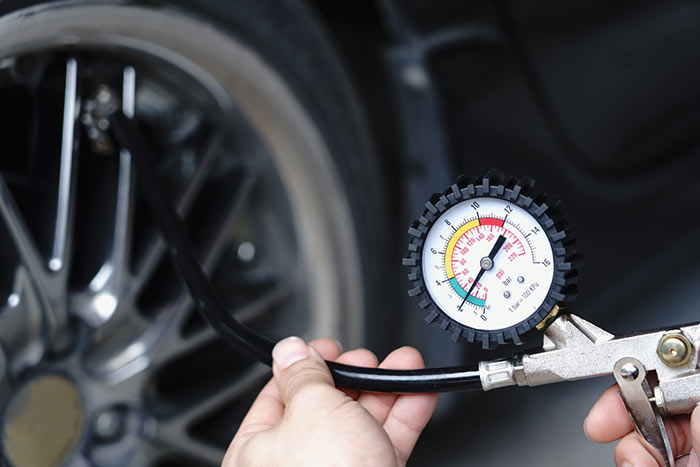
Have you ever been driving along and suddenly noticed that your car feels a bit sluggish or handles differently than usual? It might be because your tyre pressure is low. Maintaining proper inflation is not only essential for a smooth and safe ride but also for better fuel efficiency and the longevity of your tyres. As specialists in tyre pressure monitoring systems (TPMS), the team at Safe T Tyre is here to help. Here we will explore some common causes of low tyre pressure and provide tips on how to avoid them.
Temperature Fluctuations
Cause – Tyre pressure can drop in cold weather and rise in hot weather due to the physics of gases. Cold temperatures cause the air inside your tires to contract, leading to lower pressure. Conversely, hot weather causes the air to expand, increasing air pressure.
Avoidance – Check your tyre pressure regularly, especially when there are significant temperature changes. Ensure your tyres are inflated to the recommended pressure listed in your vehicle’s owner’s manual or on the driver’s side door jamb.
Slow Leaks
Cause – Slow leaks can occur due to punctures from sharp objects like nails, screws, or shards of glass. Even small punctures can gradually lead to a loss of air pressure over time.
Avoidance – Inspect your tyres visually for any foreign objects lodged in the tread. Also pay attention to signs of a slow leak, such as a consistently dropping tyre pressure. If you suspect a leak, have it repaired promptly.
Damaged Valve Stems
Cause – Valve stems are small rubber components that help maintain tyre pressure. They can become damaged due to age, wear, or corrosion, leading to slow leaks.
Avoidance – Make it a habit to inspect your valve stems for signs of wear or damage. If you notice any issues, have them replaced by a professional.
Improper Wheel Maintenance
Cause – Incorrectly installed or corroded wheel components, such as valve caps and rims, can lead to air leakage.
Avoidance – Ensure that valve caps are properly installed to prevent air from escaping. Regularly inspect rims for signs of corrosion, as this can damage the tyre bead and lead to leaks.
Overloading Your Vehicle
Cause – Overloading your vehicle with excess weight can cause your tyres to compress more than they should, resulting in low air pressure.
Avoidance – Adhere to your vehicle’s weight limit guidelines and avoid overloading. Check your vehicle’s owner’s manual for information on maximum load capacities.
Tyre Age
Cause – Over time, tyres naturally lose air due to the permeability of rubber. Older tyres may require more frequent inflation.
Avoidance – Replace tyres that have aged beyond their recommended service life. Tyres usually have a date code indicating their manufacture date, however, a good rule of thumb is to replace tyres that are six years old or older, regardless of tread wear.
Neglecting Regular Maintenance
Cause – A lack of routine tyre maintenance, including checking and adjusting air pressure, can lead to inflation issues.
Avoidance – Establish a regular maintenance schedule. Check your air pressure at least once a month and before long trips. Invest in a good-quality tyre pressure monitoring system for accurate readings.
Maintaining proper inflation in your tyres is a simple yet crucial aspect of vehicle ownership. By understanding some of the common causes of low tyre pressure and taking proactive steps to prevent them, you can ensure that your tyres remain properly inflated, keeping you and your vehicle safer on the road.
Get a TPMS Today
If your vehicle isn’t already fitted with a tyre pressure monitoring system, purchase one from Safe T Tyre today. No matter what you drive, we can help you pick the perfect TPMS to meet your needs and budget. Contact us online or call 1800 499 383 now.

